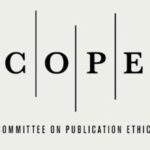Layla Fouad Ali¹ ,Fadhel Mohammed Lafta¹
,Fadhel Mohammed Lafta¹ and Basim Mohammed Khashman²✉
and Basim Mohammed Khashman²✉
¹Department of Biology, College of Science, University of Baghdad, Iraq
²National Cancer Research Center, University of Baghdad, Iraq
Received: July 26, 2023/ Revised: Aug 23, 2023/Accepted: Aug 24, 2023
(✉) Corresponding Author: basimkh@gmail.com
Abstract
The latest global pandemic of severe acute respiratory syndrome (SARS-CoV-2) is triggered by a highly pathogenic RNA virus initiating coronavirus disease 2019 (COVID-19). Epigenetic modifications (mainly DNA methylation and histone modification) are key regulators of the transcriptome. Such epigenetic marks have the ability to switch on/off gene expression. Additionally, the epigenetic marks are known to be dynamic, reversible, and more vulnerable, than the genome, in response to environmental insults including pathogenic invaders such as viruses and bacteria. During the period of COVID-19 pandemic, much more efforts have been concentrated on characterizing the SARS-CoV-2 virus, determining how it enters the cells, and revealing the associated health complications. Interestingly, the SARS-CoV-2 RNA virus is believed to have the potential of hijacking the host immune cells’ epigenome to avoid antiviral defense. However, a very little scientific understanding of how the host epigenome responds to COVID-19 infection. This review summarizes the existing knowledge and provides an overview of a considerable amount of literature published on this topic, especially the contribution of DNA methylation alterations in triggering the cytokine storm in pulmonary tissues mainly by the hyper-activation of the immune system and uncontrolled influx of cytokines in response to COVID-19 infection.
Keywords: COVID-19 Infection, DNA Methylation, Cytokines Storm
References
Zhao, B. (2020). COVID-19 pandemic, health risks, and economic consequences: Evidence from China. China Economic Review, 64, 101561.
Desai, A. D., Lavelle, M., Boursiquot, B. C., & Wan, E. Y. (2022). Long-term complications of COVID-19. American Journal of Physiology-Cell Physiology, 322(1), C1-C11.
van Otterdijk, S. D., Mathers, J. C., & Strathdee, G. (2013). Do age-related changes in DNA methylation play a role in the development of age-related diseases?. Biochemical Society Transactions, 41(3), 803-807.
Behura, A., Naik, L., Patel, S., Das, M., Kumar, A., Mishra, A. & Dhiman, R. (2022). Involvement of epigenetics in affecting host immunity during SARS-CoV-2 infection. Biochimica et Biophysica Acta (BBA)-Molecular Basis of Disease, 166634.
Salem, S., Mosaad, R., Lotfy, R., & Elbadry, M. (2023). Altered expression of DNA methyltransferases and methylation status of the TLR4 and TNF-α promoters in COVID-19. Archives of Virology, 168(3), 95.
Ryan, L., Pelizzola, M., Dowen, R. H., Hawkins, R. D., Hon, G., Tonti-Filippini, J., & Ecker, J. R. (2009). Human DNA methylomes at base resolution show widespread epigenomic differences. nature, 462(7271), 315-322.
Noroozi, R., Ghafouri-Fard, S., Pisarek, A., Rudnicka, J., Spolnicka, M., Branicki, W., & Pośpiech, E. (2021). DNA methylation-based age clocks: From age prediction to age reversion. Ageing Research Reviews, 68, 101314.
Baylin, S. B., & Ohm, J. E. (2006). Epigenetic gene silencing in cancer–a mechanism for early oncogenic pathway addiction?. Nature Reviews Cancer, 6(2), 107-116.
Goodier, J. L., & Kazazian, H. H. (2008). Retrotransposons revisited: the restraint and rehabilitation of parasites. Cell, 135(1), 23-35.
Pappalardo, X. G., & Barra, V. (2021). Losing DNA methylation at repetitive elements and breaking bad. Epigenetics & chromatin, 14(1), 1-21.
Bartolomei, M. S., Oakey, R. J., & Wutz, A. (2020). Genomic imprinting: An epigenetic regulatory system. PLoS genetics, 16(8), e1008970.
Cardenas, A., Rifas-Shiman, S. L., Sordillo, J. E., DeMeo, D. L., Baccarelli, A. A., Hivert, M. F. & Oken, E. (2021). DNA methylation architecture of the ACE2 gene in nasal cells of children. Scientific reports, 11(1), 7107.
Foresta, C., Rocca, M. S., & Di Nisio, A. (2021). Gender susceptibility to COVID-19: a review of the putative role of sex hormones and X chromosome. Journal of endocrinological investigation, 44, 951-956.
Loyfer, N., Magenheim, J., Peretz, A., Cann, G., Bredno, J., Klochendler, A., & Kaplan, T. (2023). A DNA methylation atlas of normal human cell types. Nature, 613(7943), 355-364.
Dey, A., Vaishak, K., Deka, D., Radhakrishnan, A. K., Paul, S., Shanmugam, P., & Banerjee, A. (2023). Epigenetic perspectives associated with COVID-19 infection and related cytokine storm: an updated review. Infection, 1-16.
Ragab, D., Salah Eldin, H., Taeimah, M., Khattab, R., & Salem, R. (2020). The COVID-19 cytokine storm; what we know so far. Frontiers in immunology, 1446.
Rath, S., Perikala, V., Jena, A. B., & Dandapat, J. (2021). Factors regulating dynamics of angiotensin-converting enzyme-2 (ACE2), the gateway of SARS-CoV-2: Epigenetic modifications and therapeutic interventions by epidrugs. Biomedicine & Pharmacotherapy, 143, 112095.
Daniel, G., Paola, A. R., Nancy, G., Fernando, S. O., Beatriz, A., Zulema, R., & Adriana, R. (2022). Epigenetic mechanisms and host factors impact ACE2 gene expression: Implications in COVID-19 susceptibility. Infection, Genetics and Evolution, 104, 105357.
Foolchand, A., Mazaleni, S., Ghazi, T., & Chuturgoon, A. A. (2022). A review: Highlighting the links between epigenetics, COVID-19 infection, and vitamin D. International Journal of Molecular Sciences, 23(20), 12292.
Calzari, L., Zanotti, L., Inglese, E., Scaglione, F., Cavagnola, R., Ranucci, F., & Gentilini, D. (2023). Role of epigenetics in the clinical evolution of COVID-19 disease. Epigenome-wide association study identifies markers of severe outcome. European Journal of Medical Research, 28(1), 1-15.
Godoy-Tena, G., Barmada, A., Morante-Palacios, O., de la Calle-Fabregat, C., Martins-Ferreira, R., Ferreté-Bonastre, A. G., & Ballestar, E. (2022). Epigenetic and transcriptomic reprogramming in monocytes of severe COVID-19 patients reflects alterations in myeloid differentiation and the influence of inflammatory cytokines. Genome Medicine, 14(1), 1-22.
Brown, J. A., Amir, M. and Zeng, M. Y. (2023). Epigenetic modifications and regulation in infection. Epigenetics in Organ Specific Disorders. 181-209.
Saraei, R., Hazrati, A., Valizadeh, H., Hashemi, B., Navashenaq, J. G., Roshangar, L., & Ahmadi, M. (2021). Mesenchymal Stem Cells Impact on COVID-19 Patients Immune System, an Ex Vivo Study.
Yang, X., Rutkovsky, A. C., Zhou, J., Zhong, Y., Reese, J., Schnell, T., … & Nagarkatti, M. (2022). Characterization of altered gene expression and histone methylation in peripheral blood mononuclear cells regulating inflammation in covid-19 patients. The Journal of Immunology, 208(8), 1968-1977.
Kgatle, M. M., Lawal, I. O., Mashabela, G., Boshomane, T. M. G., Koatale, P. C., Mahasha, P. W., & Sathekge, M. M. (2021). COVID-19 is a multi-organ aggressor: epigenetic and clinical marks. Frontiers in Immunology, 12, 752380.
Barturen, G., Carnero-Montoro, E., Martínez-Bueno, M., Rojo-Rello, S., Sobrino, B., Porras-Perales, Ó., & Alarcón-Riquelme, M. E. (2022). Whole blood DNA methylation analysis reveals respiratory environmental traits involved in COVID-19 severity following SARS-CoV-2 infection. Nature Communications, 13(1), 4597.
Balnis, J., Madrid, A., Hogan, K. J., Drake, L. A., Chieng, H. C., Tiwari, A., & Jaitovich, A. (2021). Blood DNA methylation and COVID-19 outcomes. Clinical epigenetics, 13(1), 118.
Bowler, S., Papoutsoglou, G., Karanikas, A., Tsamardinos, I., Corley, M. J., & Ndhlovu, L. C. (2022). A machine learning approach utilizing DNA methylation as an accurate classifier of COVID-19 disease severity. Scientific Reports, 12(1), 17480.
Konigsberg, I. R., Barnes, B., Campbell, M., Davidson, E., Zhen, Y., Pallisard, O., & Barnes, K. C. (2021). Host methylation predicts SARS-CoV-2 infection and clinical outcome. Communications medicine, 1(1), 42.
Arnold, C. G., Konigsberg, I., Adams, J. Y., Sharma, S., Aggarwal, N., Hopkinson, A., & Monte, A. A. (2022). Epigenetics may characterize asymptomatic COVID-19 infection. Human genomics, 16(1), 27.
Corley, M. J., Pang, A. P., Dody, K., Mudd, P. A., Patterson, B. K., Seethamraju, H., & Ndhlovu, L. C. (2021). Genome-wide DNA methylation profiling of peripheral blood reveals an epigenetic signature associated with severe COVID-19. Journal of leukocyte biology, 110(1), 21-26.
Zhou, S., Zhang, J., Xu, J., Zhang, F., Li, P., He, Y., & Dong, L. (2021). An epigenome‐wide DNA methylation study of patients with COVID‐19. Annals of human genetics, 85(6), 221-234.
de Moura, M. C., Davalos, V., Planas-Serra, L., Alvarez-Errico, D., Arribas, C., Ruiz, M., & Esteller, M. (2021). Epigenome-wide association study of COVID-19 severity with respiratory failure. EBioMedicine, 66.
Pang, A. P., Higgins-Chen, A. T., Comite, F., Raica, I., Arboleda, C., Went, H., & Corley, M. J. (2022). Longitudinal study of DNA methylation and epigenetic clocks prior to and following test-confirmed COVID-19 and mRNA vaccination. Frontiers in Genetics, 13, 819749.
Wang, G., Xiong, Z., Yang, F., Zheng, X., Zong, W., Li, R., & Bao, Y. (2022). Identification of COVID-19-associated DNA methylation variations by integrating methylation array and scRNA-Seq data at cell-type resolution. Genes, 13(7), 1109.
Huoman, J., Sayyab, S., Apostolou, E., Karlsson, L., Porcile, L., Rizwan, M., & Lerm, M. (2021). Epigenome-wide DNA methylation profiling of healthy COVID-19 recoverees reveals a unique signature in circulating immune cells.
Bradic, M., Taleb, S., Thomas, B., Chidiac, O., Robay, A., Hassan, N., & Abi Khalil, C. (2022). DNA methylation predicts the outcome of COVID-19 patients with acute respiratory distress syndrome. Journal of Translational Medicine, 20(1), 526.
Li, L., Hu, L., Qiao, X., Mo, R., Liu, G. and Hu, L. (2023). Integrative Analysis of DNA Methylation and Gene Expression Data Identifies Potential Biomarkers and Functional Epigenetic Modules for SARS-CoV-2. Biochemical Genetics. 1-12.
Bohlin, J., Page, C. M., Lee, Y., Pettersson, J. H. O., Jugessur, A., Magnus, P., & Håberg, S. E. (2022). Age and sex effects on DNA methylation sites linked to genes implicated in severe COVID-19 and SARS-CoV-2 host cell entry. Plos one, 17(6), e0269105.
Chen, L., Liao, H., Huang, G., Ding, S., Guo, W., Huang, T., & Cai, Y. (2022). Identification of DNA methylation signature and rules for SARS-CoV-2 associated with age. Frontiers in Bioscience-Landmark, 27(7), 204.
Steyaert, S., Trooskens, G., Delanghe, J. R., & Van Criekinge, W. (2020). Differential methylation as a mediator of COVID-19 susceptibility. BioRxiv, 2020-08.
Mao, W., Miller, C. M., Nair, V. D., Ge, Y., Amper, M. A. S., Cappuccio, A., & Chikina, M. (2023). A methylation clock model of mild SARS‐CoV‐2 infection provides insight into immune dysregulation. Molecular Systems Biology, 19(5), e11361.
Zhang, Z. (2022). COVID-19 DNA Methylation Markers and Druggable Targets and Potential Malignant Diseases with Long Incubation Period.
How to cite this article
Ali, L. F., Lafta, F. M. and Khashman, B. M. (2023). Host’s DNA methylation alterations accompanying COVID-19 infection: A Review article. Microbial Science Archives, Vol. 3(3), 87-93.https://doi.org/10.47587/MSA.2023.3303
Licence Article Metadata
This work is licensed under a Creative Commons Attribution 4.0 International License.
![]()











